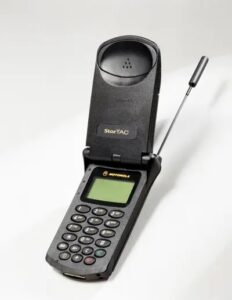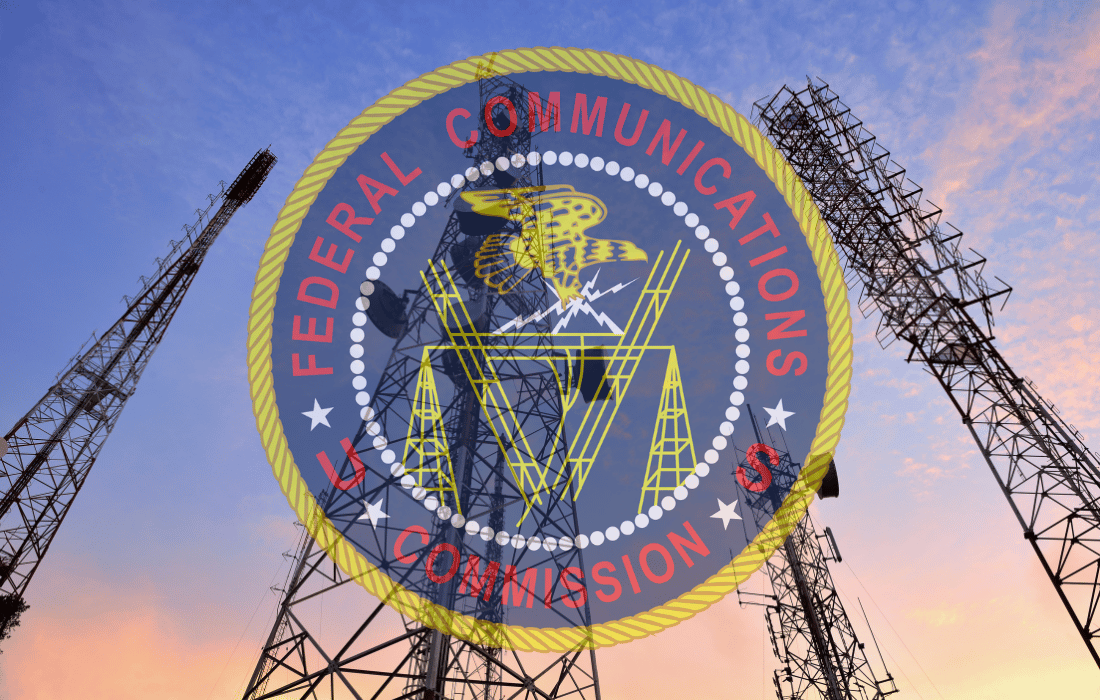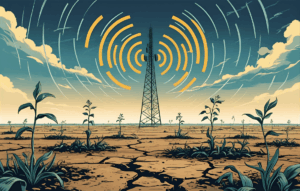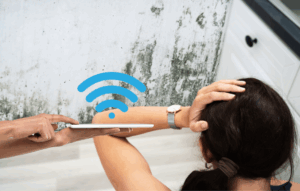The rollout of 5G wireless technology has been marketed as the cornerstone of a hyper-connected future, promising faster speeds, better connectivity, and the potential to revolutionize industries. But behind the glossy promises lies an uncomfortable truth: the Federal Communications Commission (FCC), the U.S. agency responsible for regulating wireless technology, has long ignored growing concerns about the potential health risks of radiofrequency (RF) radiation.
A 2022 investigation revealed systemic failures at the FCC, including reliance on outdated safety standards, a dismissive attitude toward scientific evidence, and a cozy relationship with the telecommunications industry. Advocacy from figures like Robert F. Kennedy Jr. and mounting public resistance have intensified the spotlight on the FCC’s inadequacies. This article examines the agency’s missteps, the scientific evidence of harm, and the grassroots efforts fighting for accountability.
The FCC’s 1996 Standards: A Regulatory Relic

The FCC’s current safety guidelines for RF radiation were established in 1996, when cell phones were basic devices used primarily for calls and text messaging. These guidelines focus exclusively on thermal effects, assessing whether RF radiation heats tissue enough to cause harm. However, they completely ignore non-thermal biological effects, which studies have increasingly linked to DNA damage, cancer, and neurological issues.
These guidelines have not been updated despite dramatic advances in wireless technology. The proliferation of smartphones, tablets, smartwatches, and the dense infrastructure required for 5G networks have fundamentally changed the nature of RF exposure. Unlike previous generations, 5G operates on higher-frequency waves and relies on small cell towers spaced every few hundred meters, significantly increasing exposure levels for the general public.
A Landmark Federal Appeals Court Ruling
In 2021, the United States Court of Appeals for the District of Columbia Circuit ruled that the FCC had failed to provide a reasoned explanation for its refusal to update its RF safety standards. The case, brought by the Environmental Health Trust and Children’s Health Defense, highlighted extensive scientific evidence of non-thermal biological effects. Studies presented in the case linked RF exposure to increased cancer risk, oxidative stress, and developmental issues in children.
The court criticized the FCC for ignoring hundreds of peer-reviewed studies and for failing to address the cumulative impact of RF radiation exposure from modern wireless devices. This ruling forced the FCC to reevaluate its safety guidelines, but progress has been slow, and the agency has continued to prioritize industry demands over public health concerns.
Industry Influence: The FCC’s Cozy Relationship with Telecom Giants
The FCC’s reluctance to update its safety standards is deeply intertwined with its close relationship with the telecommunications industry. Many FCC officials have financial or professional ties to wireless companies, creating an environment of regulatory capture. One of the most prominent examples is Brendan Carr, an FCC commissioner who has been a vocal advocate for 5G while dismissing health concerns as unfounded.
ProPublica’s investigation exposed how industry lobbying has shaped FCC policies, ensuring that the rapid deployment of 5G infrastructure remains a top priority. Meanwhile, industry-funded research, which often finds no significant risks associated with RF radiation, dominates the regulatory discourse. Independent studies showing potential harm are frequently dismissed, leaving the public vulnerable to unchecked exposure.
Robert F. Kennedy Jr. and the Fight for Accountability
Robert F. Kennedy Jr., founder of Children’s Health Defense, has emerged as a leading voice in the fight against the FCC’s regulatory failures. His legal and advocacy efforts have centered on holding the FCC accountable for its outdated standards and refusal to address RF radiation’s health risks.
The 2021 Federal Appeals Court Victory
Kennedy’s legal team was pivotal in the 2021 appeals court case that forced the FCC to reassess its safety guidelines. This victory highlighted the agency’s negligence in ignoring scientific evidence and underscored the need for updated regulations that reflect the realities of modern wireless technology.
Kennedy vs. Brendan Carr
Kennedy has publicly criticized FCC Commissioner Brendan Carr for his industry-friendly stance, accusing him of prioritizing corporate interests over public health. This clash has brought national attention to the issue of regulatory capture, emphasizing the need for independent oversight of wireless technology.
The 2023 Lawsuit Against FCC Wireless Guidelines
In December 2023, Kennedy’s legal team filed a new lawsuit against the FCC, challenging its continued refusal to update its safety standards. The lawsuit argues that the agency is violating the Administrative Procedure Act by ignoring substantial evidence of non-thermal biological effects, including oxidative stress, hormonal disruptions, and developmental impacts on children. This case builds on the momentum of previous legal victories and aims to compel the FCC to adopt stricter, science-based safety standards.
Chromosomal Changes and the Fight Against Cell Towers
One of the most contentious aspects of 5G is the infrastructure required for its deployment. Millions of small cell towers are being installed in close proximity to homes, schools, and workplaces, sparking widespread public resistance. A study by Ecotoxicology and Environmental Safety found that people living near cell phone towers exhibited increased rates of chromosomal abnormalities. These abnormalities, linked to cancer and reproductive health risks, have fueled grassroots movements across the country.
Communities have organized protests and filed lawsuits to block the installation of 5G towers, citing health concerns and a lack of transparency from both the FCC and telecommunications companies. These efforts reflect a growing distrust of regulatory agencies and a desire for greater accountability.
The Science of RF Radiation: Mounting Evidence of Harm
Independent research has increasingly linked RF radiation to a range of health risks, challenging industry assurances of safety.
Cancer and DNA Damage: The National Toxicology Program (NTP) conducted a $30 million study that found clear evidence of cancer risk in male rats exposed to RF radiation. Similar findings were reported by the Ramazzini Institute in Italy, which linked RF exposure to rare tumors.
Neurological Effects: RF radiation has been shown to disrupt the blood-brain barrier, potentially allowing harmful substances to enter the brain. This has been associated with headaches, cognitive impairments, and an increased risk of neurodegenerative diseases.
Electrohypersensitivity (EHS): A subset of the population experiences symptoms such as fatigue, headaches, and skin irritation, which they attribute to RF radiation exposure. While EHS remains a controversial diagnosis, its growing prevalence underscores the need for further research.
What Can Be Done? Practical Solutions for Mitigation
While systemic change is necessary, individuals and communities can take proactive steps to reduce their exposure to RF radiation and advocate for better regulations.
Adopt EMF Protection: Use devices like those from Aires Tech to neutralize harmful frequencies and reduce oxidative stress.
Limit Wireless Exposure: Use wired connections whenever possible and turn off wireless devices when not in use, especially at night.
Support Advocacy Efforts: Join organizations like Children’s Health Defense or local grassroots movements pushing for stricter RF safety standards.
Educate Yourself: Stay informed about the latest research and regulatory developments to make conscious decisions about technology use.
Parting Thoughts
The FCC’s failure to update its RF radiation safety standards has left the public vulnerable to potential health risks in the face of rapid wireless expansion. Investigations like the 2022 ProPublica report, combined with legal challenges led by figures like Robert F. Kennedy Jr., have exposed systemic flaws in the regulatory process and emphasized the urgent need for reform. As 5G continues to expand, the fight for accountability and public health is more important than ever. By demanding transparency, supporting independent research, and taking personal precautions, we can work toward a safer, more responsible wireless future.

















